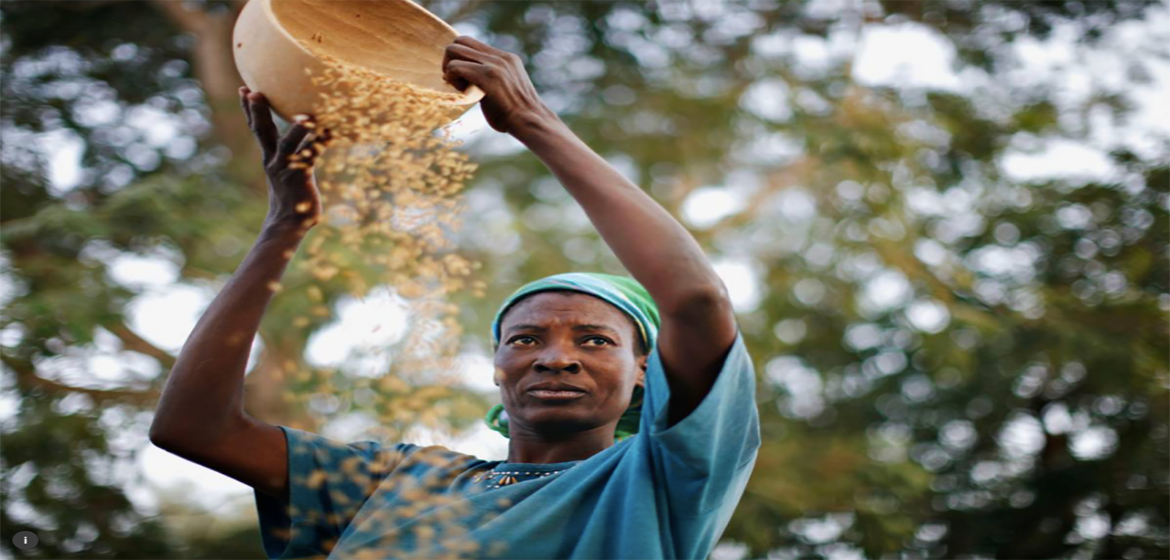by Nana Ama Yirrah
When women are educated, and understand their land rights, they can advocate for themselves
Successful farming is a question of amassing and applying knowledge, adapting your approach to the ecological systems that confront you, and persevering in the face of new obstacles.
For women farmers in Ghana and elsewhere in many other parts of Africa, this reality is mirrored in their struggle to secure their rights to the land that they work.
It is a struggle I know all too well.
My mother, my siblings, and I all toiled over the years to develop a cocoa farm on my father’s land in the eastern region of Ghana. When the trees started producing, my father’s took over the farm and have been harvesting and selling the produce for their benefit. Because my mother has no legal title to the land, she cannot share in the profits.
And yet, as a woman, when you insist on having your name included in property documentation and registration, you are labelled as being troublesome. You are arrogant. There is an assumption that land registered in your husband’s name is intended for the entire family, and pushing past that assumption means you don’t trust your husband, your husband’s family, and even your community to do the right thing and respect your rights.
Having those rights enshrined on paper is such an inconvenience to everyone else. But for women, it often means the difference between earning a living and depending on the charity of others to survive. Even I, an educated woman and a trained professional in the legalities of land ownership, have struggled to get my title deed registered in both mine and my husband’s names.
As several recent reports have made clear, hunger is on the rise in Sub-Saharan Africa—in contrast to global trends - . According to the United Nations, women, girls and ethnic minorities are most at risk of hunger, which causes nearly half of deaths in children under the age of five.
There is practical evidence on the ground that land rights are just as important as any other farming tool. If women worldwide had the same access and rights to productive resources as men - which is directly influenced by the recognition of property rights - they could increase yields on their farms by percent. Instead, women farmers in Africa currently produce between 13 and 25 percent less than their male counterparts.
If you talk to anybody in the land sector in Ghana, they say they are interested in protecting women and protecting their rights, but the structures in place - especially customary systems - make it challenging for women to defend their rights. It’s not that the law itself defines a different set of rights for men than for women, but the problem is in the way the law is interpreted and applied.
A of 30 low-and middle-income countries confirmed this. The 11 African countries in the study provided the most consistent affirmation of women’s property rights and greatest recognition of women’s community-level dispute-resolution rights, but inheritance rights were not as strong. These systems make it more likely that women need to rely on their relationships with men to access, and benefit from, property.
In Ghana, the current system that is in place to register land ownership is very complicated, best suited for those in urban areas who are using their land for housing purposes. This kind of documentation does not suit the smallholder farmer in the village: the process is too expensive and too difficult. For women, it becomes almost impossible, which is why any solution for securing land rights must indeed start with women.
In northern Uganda, where , women’s meetings were instrumental in teaching them about their rights to land. Facilitators engaged with groups of women to encourage them to voice their experiences, allowing them to support each other and build their confidence and capacity to exercise their rights. As a direct result, almost a third of the participants (32.5 percent) accessed more land.
When women are educated, and understand their land rights, they can advocate for themselves.
If my mother had known how to exercise her rights, the blood, sweat and tears that we all shed on my father’s cocoa farm would have benefitted our future, and not our distant in-laws.
We need more outreach, in each and every community, to make sure that women know and understand their rights to be able to exercise them. Only then can we take advantage of their potential as farmers and bring about lasting change and economic empowerment for all.
Source:
Related to SDG 5: Gender equality



